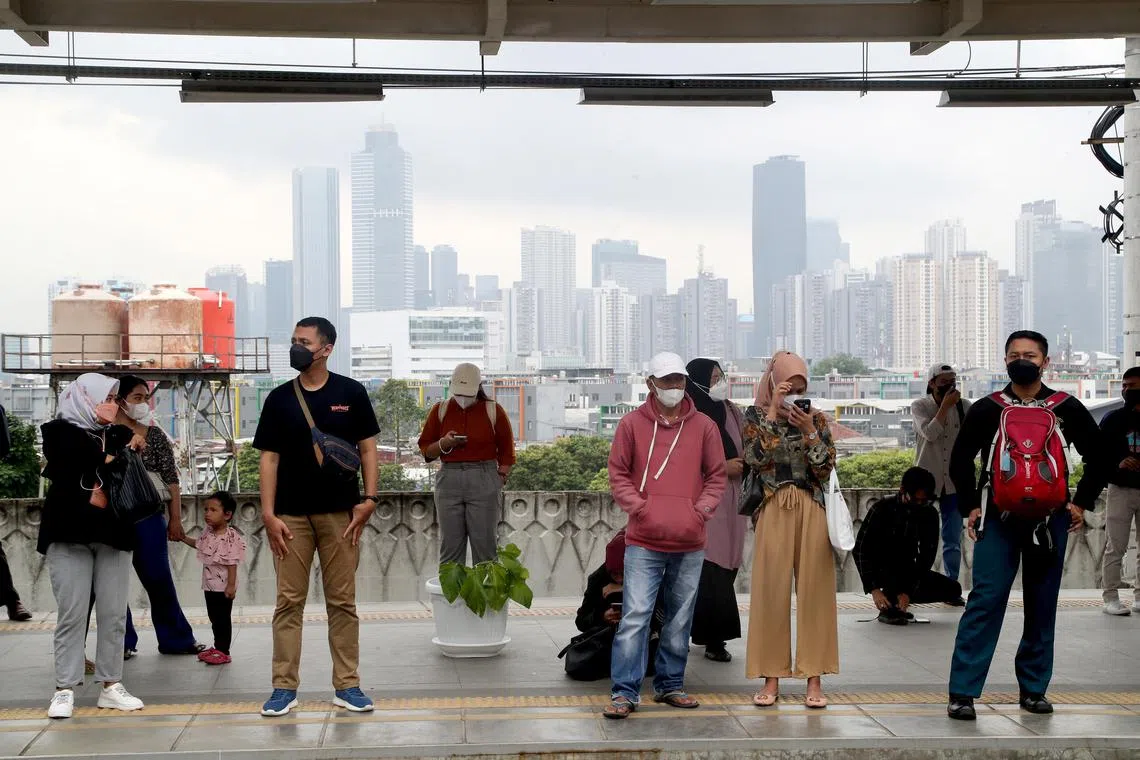Indonesia lifts Covid-19 restrictions after few cases in last 10 months
Sign up now: Get insights on Asia's fast-moving developments

Indonesia will not issue any more Covid-19 related restrictions on crowd gathering as well as on mobility.
PHOTO: EPA-EFE
JAKARTA – Indonesia ended its Covid-19 four-tiered public activity restriction system on Friday after the country saw no waves for more than 10 months consecutively.
The policy means Indonesia will not issue any more Covid-19-related restrictions on crowd gathering as well as on mobility.
“But please remain cautious… People must be more independent in preventing infection, detecting symptoms and getting medication,” President Joko Widodo told a media briefing on Friday.
“We are doing it not without any basis. It is based on science, inputs from epidemiologists, as well as data on community immunity,” he added.
Health Minister Budi Sadikin said in the same media briefing that a serosurveillance survey in July revealed that 87.8 per cent of Indonesians had immunity, while in December the figure rose to 98.5 per cent. Sero surveys provide estimates of the population’s immunity due to past infection or vaccination.
Indonesia reported a seven-day average positivity rate of 3.35 per cent on Dec 27, according to Mr Widodo. That is well below the World Health Organisation’s (WHO) 5 per cent threshold as a guide to relax social restrictions. A higher positive percentage suggests higher transmission, signalling there are likely more people with Covid-19 who have not been tested yet.
Meanwhile, the bed occupancy rate for Covid-19 is now at 4.79 per cent. This compares to above 80 per cent in mid-2021, at the peak of the country’s fight against the Delta variant.
Mr Budi said the policy, which takes effect immediately, is a strategy to prepare for a transition from pandemic to endemic, stressing that the important thing in the transition is a gradual shift from the government intervening in the health sector to public participation.
“A lot of health problems that we have faced in Indonesia were well-dealt with only when there was adequate public participation,” he said.
He was referring to the fact that the public must begin to take care of themselves, instead of waiting for government intervention, while treating Covid-19, like when they treat other ailments such as flu.
Mr Widodo said there are no plans to introduce Covid-19 tests for international travellers like in several other countries, amid rising cases in China, arguing that Indonesia’s immunity level is high.
Dr Pandu Riono, an epidemiologist at University of Indonesia, agreed, acknowledging the high immunity level.
“We should better stick to the requirements that travellers must have received a booster shot, and urge people to continue to comply with health protocols,” he said.
The US, Italy, Japan and India are among the countries which announced mandatory tests for visitors from China. The latest variant, the BF.7 sub-variant of Omicron, is believed to be driving the surge in China.
The BF.7 subvariant, which is very adept at evading immunity, was first reported in Indonesia on July 14, 2022, and the country has found a total of 14 cases so far, the Health Ministry said on Friday.
The president has urged Indonesians to continue wearing mask indoors as well as outdoors, and ordered public health facilities across the country to continue to maintain high alert, continue vaccination drives, especially booster shots.
As at Friday, about 87 per cent of eligible Indonesians have received the first dose, 75 per cent have taken the second shot, and 30 per cent had their booster shots, according to the government data.
But revoking the Covid-19 public activity restriction system does not alter the country’s health emergency status as long as the WHO still maintains the pandemic status, Mr Widodo said.
“Covid-19 related social support, vitamins and medicine supply at designated health facilities, and pandemic-related tax incentive still remain,” he added.



